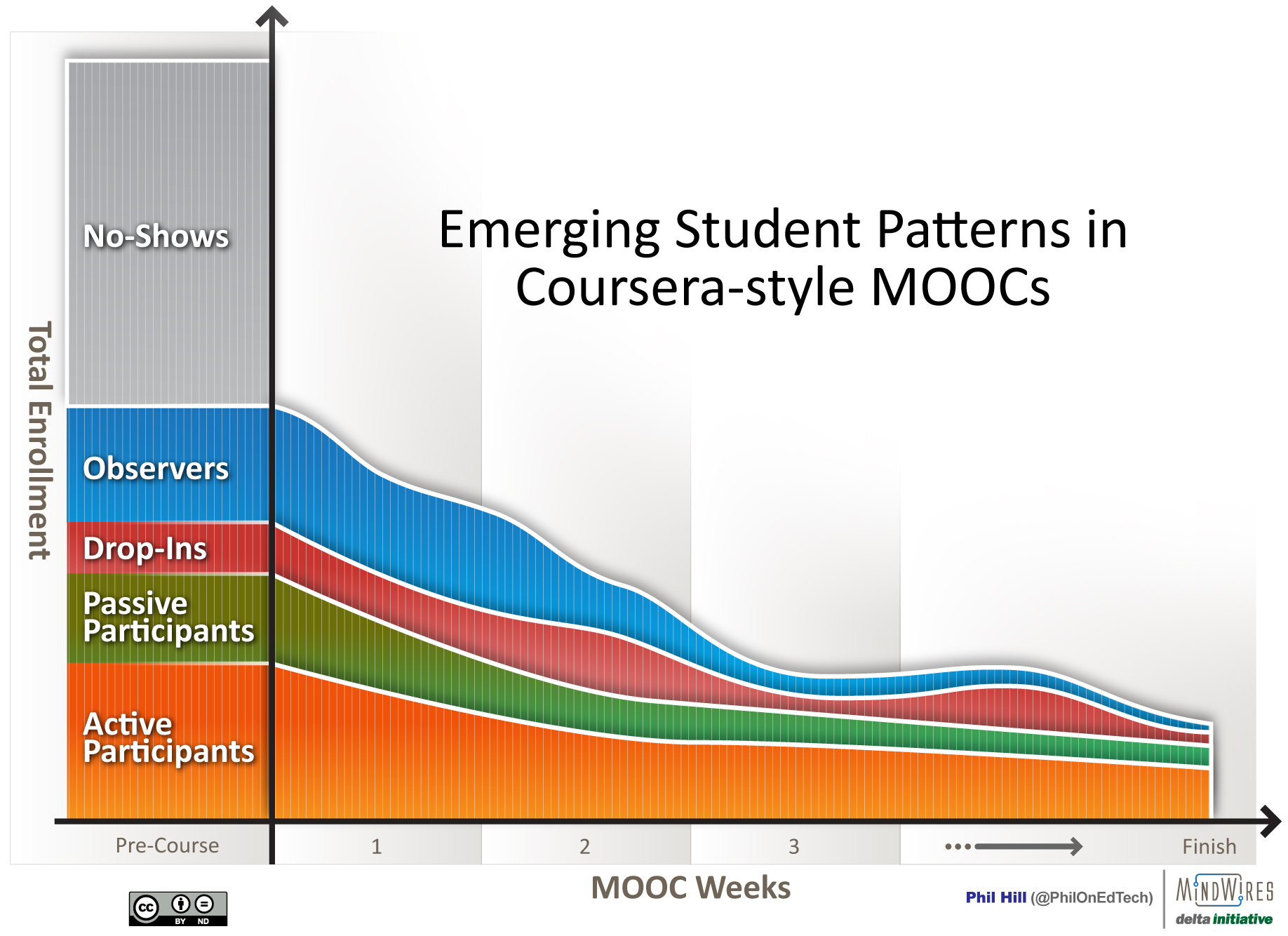 MOOCs–massively open online courses–are all the rage in some circles, believed to be on the verge of putting all but the most elite college campuses out of business over the next decade. Although I agree that online learning has the potential to augment and transform traditional education delivery methods, I’m not convinced that colleges en masse will go the way of the dinosaur anytime soon (unless their leadership is corrupt or incompetent). For one, MOOCs have a drop out rate of about 90 percent. Secondly, the average participant is not your 18 year old living in his home bedroom, saving money by forgoing college. Just over three in four (77 percent) MOOC registrants already have bachelor degrees. As Rachelle DeJong put it, “The typical MOOC user is a capable, well-educated individual genuinely interested in the topic the MOOC covers–not an inexperienced student new to the disciplines of studying.” And if they don’t stick with their courses, why would less prepared students do otherwise?
MOOCs–massively open online courses–are all the rage in some circles, believed to be on the verge of putting all but the most elite college campuses out of business over the next decade. Although I agree that online learning has the potential to augment and transform traditional education delivery methods, I’m not convinced that colleges en masse will go the way of the dinosaur anytime soon (unless their leadership is corrupt or incompetent). For one, MOOCs have a drop out rate of about 90 percent. Secondly, the average participant is not your 18 year old living in his home bedroom, saving money by forgoing college. Just over three in four (77 percent) MOOC registrants already have bachelor degrees. As Rachelle DeJong put it, “The typical MOOC user is a capable, well-educated individual genuinely interested in the topic the MOOC covers–not an inexperienced student new to the disciplines of studying.” And if they don’t stick with their courses, why would less prepared students do otherwise?
Read more from DeJong on why students drop out of MOOCs.
From a public policy perspective, I think we need to increase the accessibility of college to those with the academic background, maturity, and work ethic to benefit from the experience. It’s tragic that few gifted students from low income families attend college. But the real trick is to boost accessibility (i.e., affordability) without sacrificing quality.